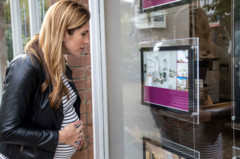
UK Technology Secretary Peter Kyle has indicated that a potential ban on social media for under-16s is “on the table” as the government explores ways to protect young people online. Speaking on BBC Radio 4’s Today programme, Kyle emphasized his commitment to keeping children safe in the digital landscape.
The potential ban follows Australia’s similar legislative proposal and comes amid growing concerns about the impact of social media and smartphones on young people’s well-being. Kyle announced plans for further research, noting a current lack of “firm, peer-reviewed evidence” about technology’s effects on youth.
As part of his strategic priorities, Kyle has outlined expectations for Ofcom, the communications regulator, which is set to assume expanded powers under the Online Safety Act (OSA). The act requires tech firms to take greater responsibility for platform content and protect children from potentially harmful material.
The proposed measures could include significant consequences for non-compliant tech companies, with potential fines potentially reaching billions of pounds. Some platforms have already begun implementing changes, such as Instagram creating new teen accounts and Roblox restricting messaging for young children.
Alongside social media restrictions, there’s growing momentum to control smartphone usage among young people. Parliament is currently considering a private members bill focused on making children’s digital experiences safer. Healthcare Professionals for Safer Screens, a group founded by GP Rebecca Foljambe, is advocating for smartphone restrictions, highlighting widespread professional concerns about digital technology’s impact.
While the government hasn’t banned smartphones in schools, it has issued guidance encouraging smartphone-free environments. Kyle previously claimed victory in the battle over phone use in educational settings.
Experts and advocacy groups have mixed reactions to the potential restrictions. The Molly Rose Foundation welcomed the approach but urged further strengthening of online safety legislation. Iona Silverman from law firm Freeths cautioned that a social media ban might be insufficient, arguing that a broader cultural shift and forward-thinking legislation are necessary.
The proposed measures come in the context of ongoing discussions about digital safety, including the tragic case of Brianna Ghey, whose mother previously criticized existing online protection measures as inadequate.
Kyle stressed that his priority is ensuring tech companies implement robust age verification and develop platforms with safety as a fundamental consideration. He wants Ofcom to use its new powers “assertively” to enforce these standards.
While the potential social media ban remains under consideration, the government appears committed to addressing the complex challenges posed by digital technology’s impact on young people. The ongoing research and legislative efforts suggest a comprehensive approach to balancing technological access with child protection.









